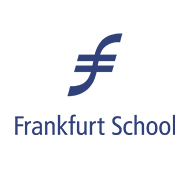Sixteen teams of graduate students will pitch ideas that address critical social and environmental issues in the final round of the 2021 Kellogg-Morgan Stanley Sustainable Investing Challenge.
Now in its 11th year, the Kellogg-Morgan Stanley Sustainable Investing Challenge saw a 34% increase in the number of global students pitching innovative finance and investing ideas that help address critical social and environmental issues. For the 2021 competition, 414 students from 50 countries submitted proposals that target sustainability challenges in 33 countries. The growth in participation helps illustrate a continued rise of sustainable and impact investing, and the burgeoning role that the next generation of financial professionals can play to scale solutions through capital markets.
This year, Northwestern University’s Kellogg School of Management and Morgan Stanley's Institute for Sustainable Investing are advancing 16 finalist teams to pitch their sustainable investing concepts. The graduate students will present their proposals virtually on April 9th to a group of sustainable investing professionals who will judge the competition and choose a winning team. Building on Morgan Stanley’s Plastic Waste Resolution, judges will award an additional prize to the top team developing an innovative financial solution that helps reduce plastic waste.
For this year’s competition, 123 teams from around the world submitted proposals. Ideas ranged from a fixed-income fund for mangrove conservation in Indonesia that would help sequester greenhouse gases and improve coastal communities’ resilience to climate change to municipal bonds that would accelerate healthcare uptake-and-delivery solutions for rural communities in India.
2021 Sustainable Investing Challenge Snapshots
Students' Home Countries
.jpg)
Australia, Austria, Bangladesh, Belgium, Brazil, British Indian Ocean Territory, Bulgaria, Canada, Chile, China, Colombia, Denmark, Ethiopia, France, Germany, Ghana, Greece, Hungary, India, Indonesia, Iran, Israel, Italy, Japan, Kenya, Republic of Korea, Lebanon, Lithuania, Luxembourg, Malawi, Malaysia, Malta, Mexico, New Zealand, Nigeria, Pakistan, Philippines, Romania, Russia, Singapore, South Africa, Spain, Switzerland, Thailand, Turkey, Uganda, Ukraine, United Kingdom, United States, Vietnam.
Countries Targeted for Impact
.jpg)
Argentina, Bangladesh, Brazil, Canada, China, Ethiopia, France, Germany, Ghana, Greece, Haiti, India, Indonesia, Italy, Kazakhstan, Kenya, Libya, Madagascar, Malawi, Malaysia, Nepal, Netherlands, Nigeria, Pakistan, Papua New Guinea, Peru, Puerto Rico, Singapore, Spain, Sweden, Thailand, United Kingdom, United States.
This year’s finalists are:

BeeBank & Brokerage
Proposal: Pooling loans and contract assurance to help beekeepers scale operations and expand practices that drive biodiversity conservation.
School: University of Oxford’s Saïd Business School, Smith School of Enterprise and the Environment and Medical Research Council Brain Network Dynamics Unit

Carbon Crypto Fund
Proposal: Cryptocurrency-based carbon credit fund focused initially on eucalyptus farmers in Thailand to help foster the generation of carbon offset credits while addressing poverty.
School: Chulalongkorn University’s Sasin School of Management

COVID-19 Performance Social Bond
Proposal: An outcomes-based social bond designed to incentivize EU government and policymaking to prioritize the preservation of employment and help address economic inequality exacerbated by the COVID-19 pandemic.
School: University of St. Gallen

ESG Litigation Fund
Proposal: Litigation-financing private-equity fund designed to help underwrite environmental, social and governance (ESG) litigation in the U.S.
School: Queens University’s Smith School of Business

European Circular Fund
Proposal: Introducing a plastic packaging-focused cap-and-trade system designed to support a loan fund for waste collection, waste treatment and recycling companies within the EU.
School: Frankfurt School of Finance and Management

Fund for E-Bus Batteries
Proposal: A leveraged fund financed by private equity and asset investors seeking to help accelerate the adoption of electric buses in The Netherlands, by creating a solution for second-life application of batteries.
School: University of Edinburgh Business School, University of Edinburgh School of Engineering

Gigabyte Real Estate ENvironmental Trust (GREEN REIT)
Proposal: A real estate investment trust targeting Singapore-based green data centers as a novel asset class designed to help decrease carbon footprints and improve impact transparency.
School: University of Oxford’s Saïd School of Business

Gloria Insurance
Proposal: An optimized, index-based insurance solution for climate-related disasters, managing for moral hazard risk while helping to expedite insurance-payout claims for farmers in Madagascar.
School: New York University’s Stern School of Business, Queens University’s Smith School of Business, Sciences Po University, University of Toronto’s Rotman School of Management

Green Default Swap
Proposal: A green default swap to help mitigate the risk of “greenwashing” in the context of EU regulatory taxonomy, reporting and verification.
School: Northwestern University’s Kellogg School of Management

Greenfill Trust
Proposal: A real estate investment trust to invest in U.S.-based landfills and next-generation recycling facilities to help improve plastic waste collection and recycling.
School: Singapore Management University’s Lee Kong Chian School of Business

Healthcare Energy Assurance & Resilience Trust (HEART)
Proposal: A private-equity fund investing in stand-alone renewable-energy generation and storage infrastructure to help make healthcare facilities more sustainable and resilient.
School: University of California, Berkeley’s Haas School of Business

Incarceration Investment Fund
Proposal: A mutual fund designed to provide access to working capital for incarcerated individuals upon their release from prison. Investors may include soon-to-be incarcerated individuals as well as impact-driven investors and donors.
School: Northwestern University’s Kellogg School of Management

Kazakhstan Solar Desalination Fund
Proposal: An infrastructure-focused private-equity fund investing in floating solar farms on the Caspian Sea to provide clean and affordable energy to desalination plants in Kazakhstan.
School: Columbia University’s School of International and Public Affairs and School of Professional Studies

Scope 5 Carbon Savings Account
Proposal: Tax-advantaged carbon savings accounts modeled on employee health savings accounts to help employees upgrade home technology that shrinks their carbon footprints and utility bills.
School: Stanford University’s Stanford School of Engineering

Solar Cycle Fund
Proposal: A private-equity fund designed to harness the extended life of decommissioned solar panels, helping to reduce waste through second-life equipment deployment in developing nations.
School: University of California, Berkeley’s Haas School of Business, University of Pennsylvania’s Wharton School

Sustainable Infrastructure Debt Fund
Proposal: A debt fund that would fill a gap in capital flows to sustainable infrastructure projects in developing countries and provide a first-loss hedge for institutional investors to enhance projects’ credit profiles.
School: Yale University’s School of Management and School of the Environment



